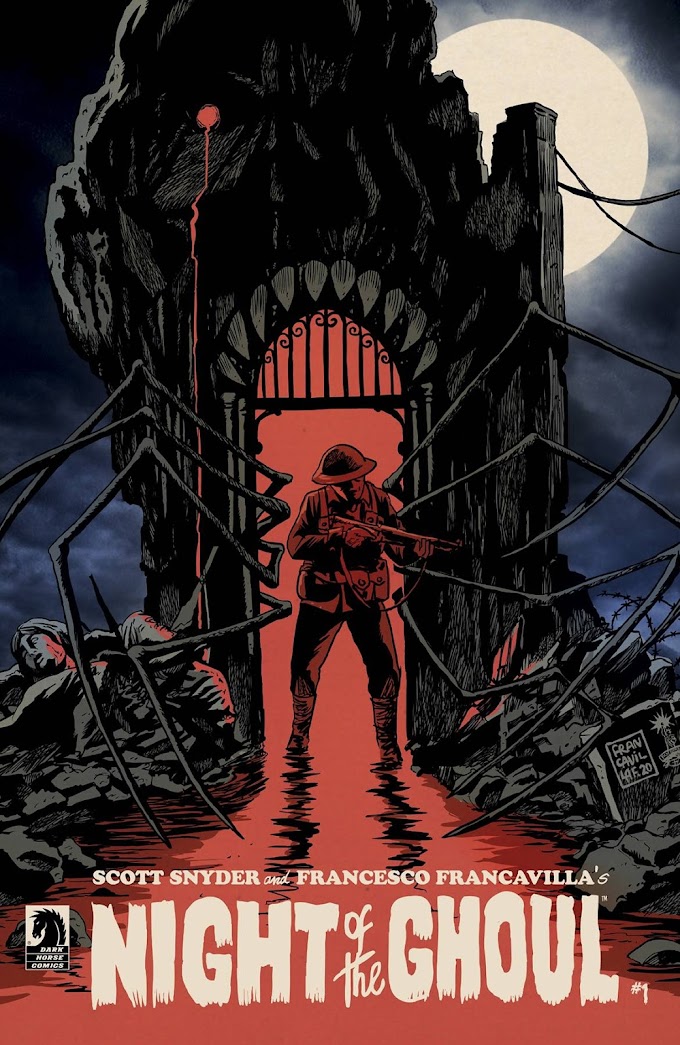Illustrated by Sergio Aragones
Dark Horse
If it wasn't bad enough that Groo caused economic havoc just by entering a town and accidentally destroying it, now he's doing even more damage with a few careless words than he ever did with a sword! It's a lesson in power, politics, and purses in another Groo mini-series.
While I love both Mark Evanier and Sergio Aragones, separately or together, I have to admit I was disappointed in Hell on Earth, the last Groo trade I read. While Groo has always had a political bent, the nuance and humor was lacking as Evanier hammered away at his readers, most of whom probably agreed with him on climate change anyway and didn't need quite that much brow-beating and less than subtle commentary.
While there is still quite a bit of thinly disguised politics in the Hogs of the Horder, some of which is a bit ham-handed, Evanier does a better job of mixing it in with Groo's antics. I have no problem with political satire, but Groo is also about lampooning other things, like its Conan the Barbarian roots. The idea of Groo is that he brings ruin to everything he touches, and that's the key to what makes this one better and is in fact really clever if you think about it. Groo not only frays and destroys with his swords, this time he's just as damaging by suggesting, quite innocently, that the merchants of Horder buy the products of Khitan.
From this little moment, Groo creates a spiral of bad decisions, from hiring him in the first place to a series of thinly-veiled American corporate buisnessmen trying to use Groo's unintentional ruination of their businesses to borrow funds and rebuild. While they do this, making decisions such as chariots with "more horses" or buying solely from
In the end, Evanier shows that this cycle just won't work, even if it's the one we're trapped in. The story ends by showing an alternative path, one that we've forgotten about. How well it might work, I don't know, but it made for an interesting ending in a story that doesn't offer much hope for those of us living in one of those moments of transition. That's probably Evanier's point, and it's a good one. Just as Horder doesn't get itself into this mess in a day, neither did the real world, and dealing with the consequences will leave just as much unsolved as we see here when Groo leaves Horder a far lesser place than when he entered it.
Any Evanier-penned story has its running gags, and this one is no exception. There's an ongoing issue with Groo and boats that gets increasingly funny with time, as well as some great moments when the merchants try to use Groo to their advantage and find it doesn't always work. Groo's puzzled looks and words as he fails at job after job are also quite fun and part of why this one was a return to form in terms of scripting.
I've never had a question as to Sergio Aragones' artwork, which is top-notch regardless of the project. He is without peer in the comedic art realm and shows no signs of losing a step in terms of his drawing ability. Groo is manic in this comic, usually only standing still long enough to deliver a laugh line as he fails to understand what is going on around him. His destruction scenes are drawn in intricate detail that puts any other working artist to shame and Aragones is at home doing both splash pages and smaller panels. So many years of drawing figures has made him an expert at getting the right pose or facial feature to match his long-time collaborator's script. Even the worst Groo story will be worth reading just to look at Aragones' art.
If you take your politics a bit blue and haven't checked a Groo series out in a while, this is the one to go for. It's pointed in commentary, but there are plenty of barbs to go around and the farcical nature of Groo balances the less subtle parts. I enjoyed this one, and long-time Groo fans will, too.






![Sweat and Soap [Ase to Sekken] by Kintetsu Yamada](https://blogger.googleusercontent.com/img/b/R29vZ2xl/AVvXsEgMnQltxjWqGS1_duhCp9Er1a0NbALuSFrqvjaV4_PjN_w67xCGghYt-l0qKyqTH7Ei7gbq_mxVq8aPAuOiyaArwAMLJWhpGmOYaARUBnwvjmv2-ZIe20m_zR5CvKnPdI6US_AuOnmi3gSX/w680/57525895-BA7E-4EF8-9FE4-89F9C164E1A4.jpeg)

